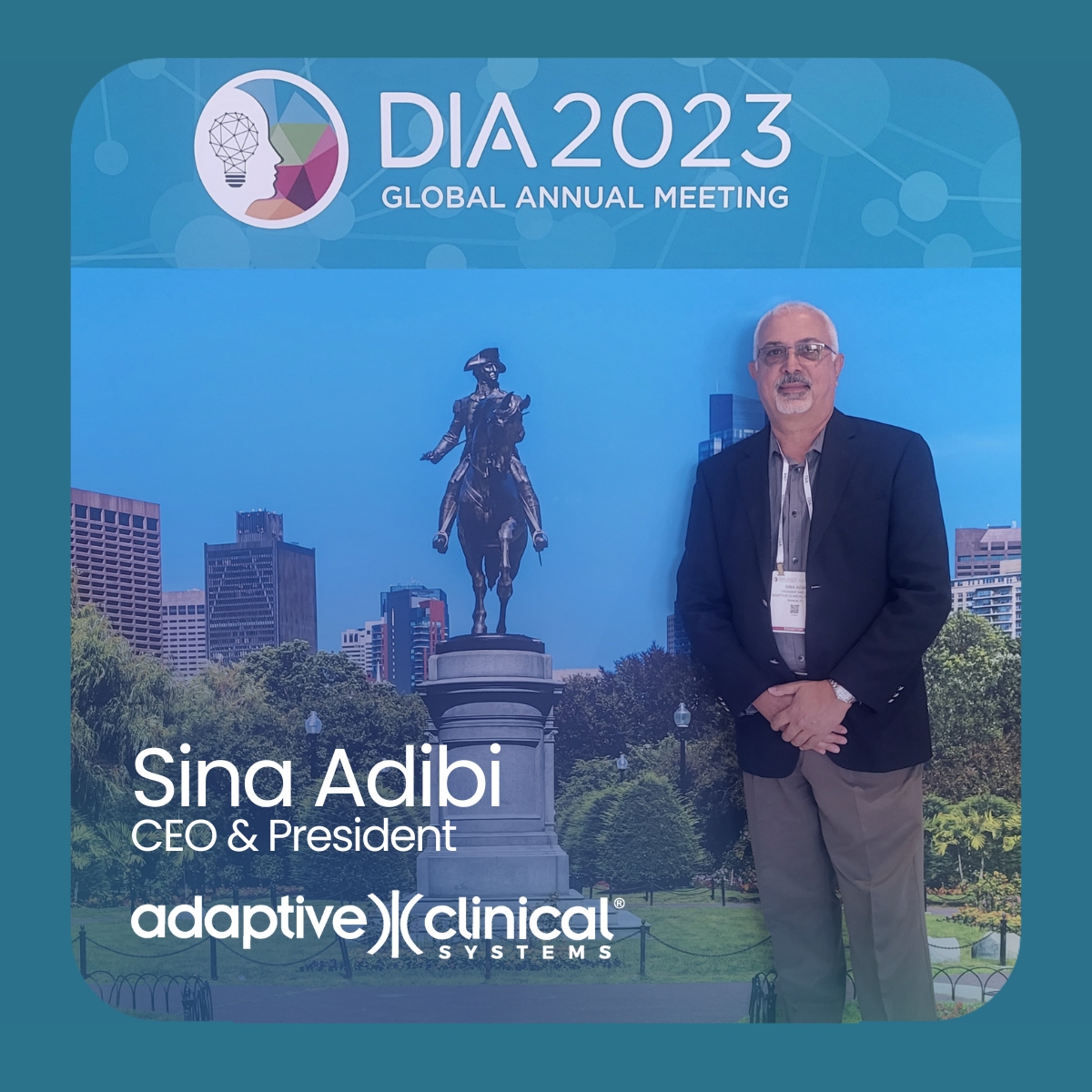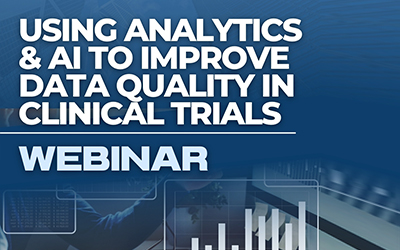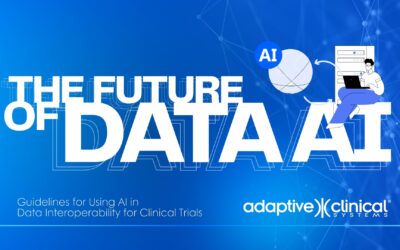DIA 2023
Our Take

By Sina Adibi, President & CEO, Adaptive Clinical Systems
Adaptive Clinical Systems was pleased to be an exhibitor at DIA 2023 with more than 5,000 attendees, some 400 sponsors and exhibitors and some 500 speakers from around the world.
The goal of the DIA 2023 Global Annual Meeting was to build on last year’s conference and go a step further to Illuminate the future of healthcare. The conference brought together all parties involved in achieving a better future.
The President and Global Chief of DIA, Marwan Fathallah, kicked off the conference, keynote, and the panel discussion. The keynote given by Junaid Bajwa, MD, Chief Medical Scientist at Microsoft Research was followed by a panel discussion by representatives from the DTRA, Flagship, Janssen and Harvard Medical School. Dr. Fathallah stressed the theme of the conference to “Illuminate,” and cited three pillars: Innovation, Diversity, and use of AI. Fathallah went on to describe AI as the accelerant for transformation and not a replacement for human intelligence, but as an assistant. Of the three pillars, we saw significant interest and attention focused on AI in both conference sessions and on the exhibitor floor.

DCTs Continue to Evolve
Decentralized Clinical Trials (DCTs) can be an instrument for making research accessible to under- represented groups and to improve diversity in research. This “unintended consequence” of DCTs was very pleasing to hear.
During the Keynote and Panel discussion, one of the panelists noted that DCTs emerged in response to COVID. Since lack of access is the biggest cause of shortcomings in diversity, it has been great to see DCTs making access universal and that we can now reach those who have been omitted from clinical trials in the past. The topic of DCTs was covered during a number of sessions later at the conference and was supported by many exhibitors. The general consensus about DCTs is that results so far have been mixed, and that it is still an emerging and evolving protocol with no single model or definition fully proven yet. Comments during the Town Hall with regulators called for more clarity in specifications.
A Focus on AI in Clinical Trials
The Keynote Panel discussion covered many issues, but the most catching were their comments about AI. One panelist commented that ML algorithms must be coupled with operational excellence – which I interpreted to mean inclusion of human learning and manual best practices. This is a critical area to monitor since AI models are susceptible to “drift.” The models need a way to be drawn back to the problem that we are asking them to solve. “Drift” means that the relationship between the target variable and the independent variables changes with time. Due to drift, the model keeps becoming unstable and the predictions keep on becoming erroneous with time. This may result when the variables themselves change, “Data Drift” or when the problem statement that we are targeting changes “concept drift.”
Regardless of the cause, these issues result in what is termed as “AI Hallucination.” In other words, results that do not have any apparent connection to the initial training. There is opportunity in that too as one of the panelists stated – particularly when you are in the business of innovation. In that case, AI Hallucinations can be used for “out of the box” ideations!


Launching AI-enabled Interoperability
At DIA 2023, Adaptive Clinical launched new AI-enabled Interoperability to the Adaptive eClinical Bus® enabling it to expand existing service levels with new automation. With its patent-pending technologies for Automated Data Integration, Data Mapping and automatic FDA-compliant Validation Documentation Generation, Adaptive Clinical continues to advance its service including AI-enabled self-service tools that quickly and efficiently add new data streams.
Overall, we were happy to be a part of a number of interesting dialogs whether the discussion was AI, patented technologies, lake houses or RWE. New innovations continue to help move the pace of clinical trials into more efficient and effective paths. Overall, the general belief was that AI is real and can and will contribute greatly to advancements in research but only if proper controls are in place. Altogether a refreshing kick off to an intense three days of the DIA 2023 conference.

Ask for a demonstration today.
Blog Posts & Resources
Using Analytics and AI to Improve Data Quality in Clinical Trials
Using Analytics and AI to Improve Data Quality in Clinical Trials. This webinar was held on Tuesday, July 9. A summary of the Q&A and Audience...
The Future of Data
THE FUTUREOF DATAGuidelines for Using AI in Data Interoperability for Clinical TrialsBy Eftim Pop-Lazarov, CTO and Chief AI Product Officer,...
Adaptive Clinical eBook Future of Data AI
Partners Adaptive Clinical shares resources to deliver unmatched solutions to our clients. Experience True Interoperability Through our...




